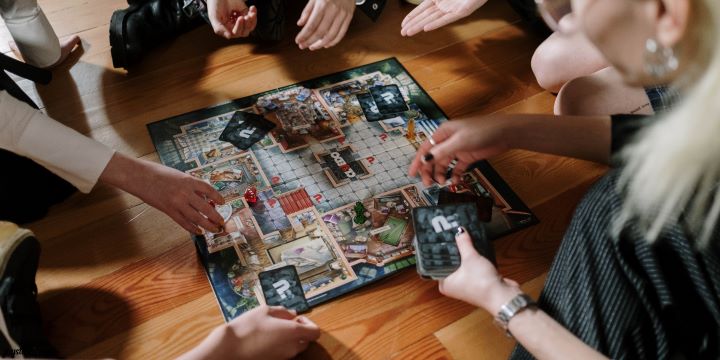Exploring Hispanic Heritage: An Insightful Guide to Tracing Ancestral Roots
Key Takeaways
- Learn the significance of understanding and preserving Hispanic heritage.
- Discover starting points and advanced strategies for genealogical research.
- Explore the role of digital tools in overcoming challenges in Hispanic genealogy.
- Find inspiration through success stories and ways to celebrate Hispanic cultural practices.
- Engage with resources to teach future generations and stay abreast of future trends in genealogy.
Table of Contents
- Understanding the Importance of Hispanic Heritage
- Beginning the Journey: Starting Points for Genealogical Research
- Digging Deeper: Advanced Strategies for Uncovering Ancestral Ties
- Hispanic Genealogy Online: Utilizing Digital Tools and Resources
- Overcoming Challenges: Common Issues in Hispanic Genealogy
- Celebrating Your Hispanic Roots: Cultural Practices and Traditions
- Children and Heritage: Teaching the Younger Generation
- Future of Hispanic Genealogy: Trends and Predictions
- Getting Involved: Resources and Organizations Supporting Hispanic Genealogy
Understanding the Importance of Hispanic Heritage
Hispanic heritage carries with it the echoes of ancestors whose lives and stories form a rich mosaic of historical narrative. Preserving and exploring this heritage is essential for understanding our place within this narrative, connecting personal identities to a broader cultural landscape. This connection to the past is personally fulfilling. It presents a chance for education and development by illuminating the complex patterns of migration, colonization, and community formation that have combined to form the current. Studying Hispanic backgrounds educates about the resilience and achievements of ancestors, bringing forth an appreciation for the traditions and values they uphold. It fosters a sense of inclusion, connects community members, and imparts a sense of pride that transcends generations. Indeed, honoring Hispanic heritage is a commitment to informing future choices with the wisdom and experience of the past.
Beginning the Journey: Starting Points for Genealogical Research
Embarking on the quest to uncover family origins begins with conversations at home. Collecting family records, photo albums, and heirlooms are tactile links to the past. Spanish language newspaper articles emerge as cornerstones in constructing a robust family history. Vital statistics are kept in easily accessible archives, from national repositories to local libraries. This journey of exploration gains a scientific edge with DNA testing, which can bisect layers of heritage, distinguishing between myth and ancestry. These foundational methods of investigation often lead to more extensive resources and communities sharing the same enthusiasm for genealogical pursuit. With ample online databases at one’s disposal and various platforms to engage, the novice genealogist becomes part of a larger narrative, overseeing the transition of familial stories into the shared annals of history.
Digging Deeper: Advanced Strategies for Uncovering Ancestral Ties
The seasoned genealogist knows that a wealth of information awaits discovery beneath the surface. One method at the core of advanced research is collecting and analyzing oral histories. These narratives contain more than mere facts; they hold emotions, expressions, and nuances that provide a fuller picture of one’s lineage. Additionally, historical documents can reveal much information, from property ownership to migration patterns. Yet such documents often require interpretation skills, such as understanding old scripts and historical contexts, to decode their valuable content.
Furthermore, as research spans international borders, particularly for heritage as diverse as Hispanic, one may encounter records in foreign languages or archaic dialects. For these instances, it is utilizing expert guides. These resources equip genealogists with strategies to navigate the intricate nature of Hispanic records, from naming patterns to local historical nuances that can significantly impact one’s family history research.
Hispanic Genealogy Online: Utilizing Digital Tools and Resources
The internet has revolutionized genealogical research, especially for Hispanic genealogy, often fraught with transnational challenges. Many digital databases offer access to records, from baptism entries in Spanish missions to passenger lists of ships bearing hopeful immigrants. Interactive tools facilitate the construction of detailed family trees, and digitized archival materials make previously hard-to-reach documents readily available. Online communities burgeon with fellow researchers and enthusiasts who often extend a helping hand. Forums and social media groups have become digital campfires where individuals share stories and resources, piecing together their historical puzzles. Leveraging the collective wisdom of these communities can lead to breakthroughs otherwise stymied by dead ends.
Overcoming Challenges: Common Issues in Hispanic Genealogy
Tracing Hispanic roots is a path fraught with unique hurdles. First and foremost amongst these is the predicament of incomplete records. Wars, natural disasters, or simple neglect lead to lost or damaged documentation that genealogists rely upon. Navigational barriers are compounded by the nuances of Hispanic surnames, which can be intricately structured and challenging to follow through generations.
Moreover, language barriers loom large for non-Spanish speakers. A solid grasp of Spanish or the availability of translation resources may be necessary to interpret historical documents accurately. Persistence, support from genealogical communities, and creative problem-solving are integral to overcoming these obstacles and unearthing the stories waiting to be told.
Celebrating Your Hispanic Roots: Cultural Practices and Traditions
Celebrating one’s Hispanic roots culminates in the recognition and engagement of cultural practices that have been passed down through generations. These traditions are living legacies of ancestors’ values, beliefs, and life experiences. They are expressed vividly in music, dance, oral traditions, and rich culinary legacies, forming connective threads that bind the community together. Reclaiming these traditions is integral to understanding and honoring one’s history.
Engaging with cultural institutions can help one appreciate the broader significance of these practices. The Latino Center – Celebrating Latino Cultures of the Smithsonian offers a trove of resources that invite exploration into the array of expressions that comprise Hispanic culture. These celebrations of identity enrich the journey of genealogical discovery and provide avenues for sharing and honoring one’s unique story.
Children and Heritage: Teaching the Younger Generation
Genealogy is not just the history of our elders; it is a roadmap for the young, offering insights and lessons that bear directly on their burgeoning cultural identity. Engaging children with their Hispanic heritage can be engaging and educational, encompassing traditional cooking, storytelling, and family tree projects. Schools also recognize the value of genealogy, incorporating heritage discovery into curricula that foster a more inclusive approach to history, imbuing students with a sense of pride and belonging. Storytelling remains the most potent medium for translating complex histories into relatable narratives that children can treasure and carry forward. These stories empower the youth with a conscious regard for their lineage, ensuring the continuation of cultural and familial legacy.
Future of Hispanic Genealogy: Trends and Predictions
The landscape of genealogy is ever-evolving, with technology acting as a critical driver of change. Innovations in DNA analytics, for instance, have only begun to transform the field, hinting at a future where genetic research may unveil even more intimate portraits of our ancestral pasts. Likewise, digitizing archives and the global collaboration among researchers are projected to escalate rapidly, making untangling one’s lineage more accessible. Vital is the trend toward heritage tourism, where individuals journey to their ancestors’ homelands, seeking to experience their heritage viscerally through the places and narratives embedded within landscapes. Heritage tourism is a testament to genealogical exploration’s enduring allure and importance.
Getting Involved: Resources and Organizations Supporting Hispanic Genealogy
Beyond the personal journey lies the collective effort to promote and support Hispanic genealogy. Various non-profit organizations, historical societies, and research groups dedicate themselves to preserving and making accessible Hispanic historical records. Volunteering with or contributing to these organizations helps safeguard this valuable information for future generations and fosters a community bound together by the shared quest for ancestral knowledge.
By getting involved, individuals can participate in larger projects that make significant impacts, such as digitizing historical records or hosting cultural events that educate and celebrate Hispanic heritage. This collective work ensures that the precious stories of our ancestors continue to inspire and inform, drawing ever more people into the rich world of genealogy.














